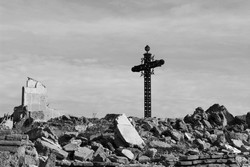Contributions of history education to constructing cultures of peace
A vast majority of the contents of history education across countries refer to violent episodes of the past. Violence becomes normalised as an inevitable trait of human affairs, and sometimes explicitly justified as a necessary means to achieve social goals. However, history education has the potential to foster a critical understanding of the past, one that challenges this normalisation and justification of violence, and thus contribute to building cultures of peace. The EU-funded project UNDERVIO (Social studies teachers' understanding and ethical discussion of political violence and nonviolence) conducted qualitative research on history education in Colombia, Spain and the United States, three countries that have their own unique experiences with political violence, historically and in the present day. History teachers participated in interviews and focus groups following an analysis of history education resources commonly used in classrooms. Results helped to broaden knowledge on the role of history education in fostering and hindering a critical understanding of political violence. There are interesting differences between countries, especially in the perspectives and experiences of teachers regarding the challenges and opportunities of teaching about the violent past in their respective contexts. However, there are recurring patterns in how history education resources across countries represent political violence in their accounts of watershed national events. The results of this work are likely to have both an academic and a social impact. The study advances an interdisciplinary dialogue between the fields of history and peace education. Further, UNDERVIO utilised an innovative methodology that allows for a more sophisticated deconstruction of the social messaging and the disciplinary/cognitive features of historical accounts. The results also offer concrete guidelines for developing teaching resources and teacher professional development programmes.







